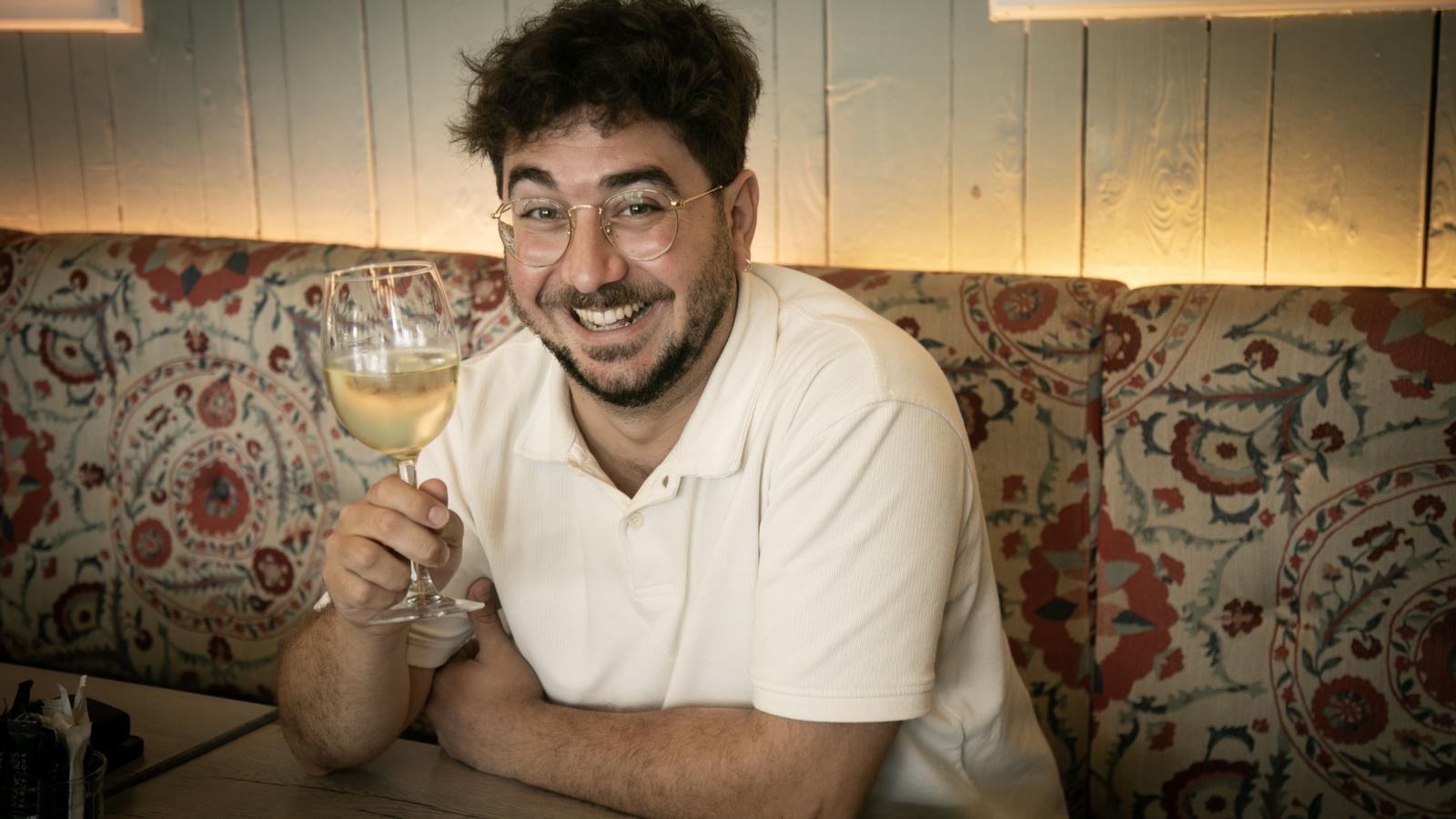Guillem Estadella: "It's a matter of stopping being a little Catalan and daring to ask questions."
Humorist


Is being a leading figure in Catalonia's most famous beer compatible with being a wine connoisseur?
— We have a very good beer, which is Estrella Damm, and, in turn, we have very good wine. In fact, I'm from the Penedès region, and there's a wine culture in Catalonia that I think isn't present elsewhere and that we should take advantage of. So, I think it's like life. One day you're more in the mood for one thing, the next you're in the mood for something else. Everything has its time. If you're having bravas in a bar, I think you'd rather have an Estrella Damm. If you're having dinner with friends, celebrating something, maybe a glass of wine is more in order.
How does a meal change with a beer or a glass of wine?
— Beer is more than cronyism, more playful, festive among colleagues, and, on the other hand, wine is much more elegant. Although now in my group of friends we're also drinking a lot of wine, because we've been discovering wineries and varieties, and, wow, it also goes down very well. I think the issue of age also influences the price you're willing to pay. A beer might be two euros, and a good bottle of wine is 19. When you're 20, you tend toward two euros, not 20, but as you have a professional life and a stable economy, you allow yourself to do so.
Beyond price, what else do you think prevents wine from appealing to young people?
— When it comes to wine, every town has its own, and you go to a restaurant and they have different wines, and I think that's what drives it, that in each area you can discover a wine. It's something deeply rooted in the territory, but, on the other hand, we treat wine in a way that alienates you. When the waiter comes up to me and asks who's going to try it... it's very uncomfortable. With beer, everything is easier: you order it, they serve it to you, you drink it. At the end of Estrella Damm, there's only one. Obviously, there are other beers, but I think it's become the dominant one. On the other hand, with wine, it seems like you have to have a master's degree, which isn't really necessary. The other option is to ask, but some people are afraid of making a fool of themselves. We Catalans have this thing of not wanting to bother others, and so we order the typical crap house wine, so as not to make a mistake. We must dare to ask. It's a matter of stopping being somewhat Catalan and daring to ask.
Do you think growing up in the Penedès region has given you any advantage in getting to know this world?
— Of course, people who live in Barcelona have it much harder. I'm lucky to know the Baix Penedès region; we have many wineries. For example, in El Vendrell we have Avgvstvs Forum, a great wine. In the end, you always end up knowing someone who owns a winery or is a distributor, and all this gives you a sense of belonging to the region. If I go to a restaurant, I'll order Penedès, because it's where I'm from. I'd like to believe it's something like football teams, which are becoming very fashionable. For example, there's a renaissance among fans of Nàstic, Reus, Lleida, and Girona. I think these clubs are asserting themselves outside of Barça's hegemony, because there's a much more niche sense of belonging.
If you had to make a recommendation, what would it be?
— Very recently, we went to La Laguna, where the Les Iaies winery is located. They're two sisters who run a small farm and make a very good wine. In fact, they've managed to make a high-altitude Xarelo, because La Laguna almost touches Igualada, and therefore the terrain is higher. I really like it because it's made by young people eager to do things, and they love the Penedès region, which is incredibly important to me. I think wines often speak to how much people love the region, and that's fantastic. Precisely because they love it, they've anticipated the climate crisis, which is why they've opted for high-altitude wines, avoiding high temperatures.
Did being from Cunit also help you hasten your first contact with wine?
— My connection with wine came almost by accident. I used to drink beer, and if I drank too much, I would get bloated. It was something that bothered me a lot. A colleague told me, "Wine doesn't make you bloated," and I started drinking wine to avoid the feeling of being bloated or feeling ill.
Did it work for you?
— Yes, I notice it quite a bit.
How often do you start a bottle?
— My partner gave me a really cool little cooler for my birthday, but the problem is that I like to see it full. So, every time I reach for a bottle, I think, "Oh, that's a shame." So, when one is gone, I buy another. But this mostly happens on weekends, because I try not to drink during the week. We should consume alcohol responsibly and in moderation; we often make it a part of our daily routine, and I think that's a mistake.
Lately, you've been doing 'Jarana' at the Muntaner Theater. So it's not the time to start a wine, either?
— When I see a comic or a comedian with a beer on stage, I find it disrespectful to the audience. Ultimately, I think what we do on stage is something serious, and that, at least I wouldn't take it for granted. But what I do have as a small ritual before performing is to have a small glass of wine. Because it serves as a bit of a breakI usually spend a lot of time driving or coming home from work, and it's a time to break away from everything I've been through and get down to business. I have my quirks... I also have a notebook where I write down everything I'm going to do and I go over the script, and while I'm going over the script, I really like to have this little glass of wine. It's a change of pace, and a little glass of wine doesn't do anything for me. Now, two bottles of water are waiting for me on stage.
